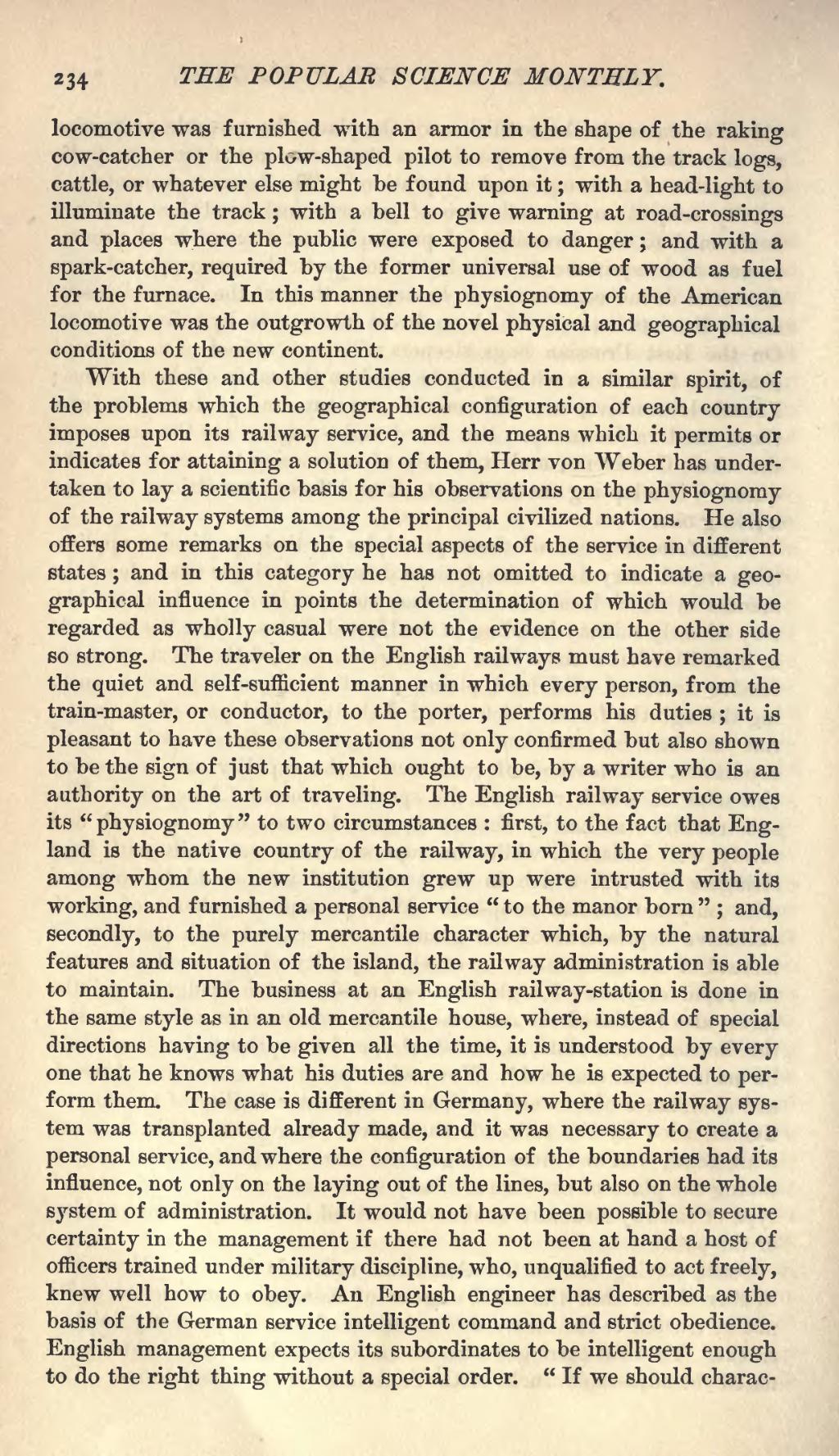locomotive was furnished with an armor in the shape of the raking
cow-catcher or the plow-shaped pilot to remove from the track logs,
cattle, or whatever else might be found upon it; with a head-light to
illuminate the track; with a bell to give warning at road-crossings
and places where the public were exposed to danger; and with a
spark-catcher, required by the former universal use of wood as fuel
for the furnace. In this manner the physiognomy of the American
locomotive was the outgrowth of the novel physical and geographical
conditions of the new continent.
With these and other studies conducted in a similar spirit, of the problems which the geographical configuration of each country imposes upon its railway service, and the means which it permits or indicates for attaining a solution of them, Herr von Weber has undertaken to lay a scientific basis for his observations on the physiognomy of the railway systems among the principal civilized nations. He also offers some remarks on the special aspects of the service in different states; and in this category he has not omitted to indicate a geographical influence in points the determination of which would be regarded as wholly casual were not the evidence on the other side so strong. The traveler on the English railways must have remarked the quiet and self-sufficient manner in which every person, from the train-master, or conductor, to the porter, performs his duties; it is pleasant to have these observations not only confirmed but also shown to be the sign of just that which ought to be, by a writer who is an authority on the art of traveling. The English railway service owes its “physiognomy” to two circumstances: first, to the fact that England is the native country of the railway, in which the very people among whom the new institution grew up were intrusted with its working, and furnished a personal service “to the manor born”; and, secondly, to the purely mercantile character which, by the natural features and situation of the island, the railway administration is able to maintain. The business at an English railway-station is done in the same style as in an old mercantile house, where, instead of special directions having to be given all the time, it is understood by every one that he knows what his duties are and how he is expected to perform them. The case is different in Germany, where the railway system was transplanted already made, and it was necessary to create a personal service, and where the configuration of the boundaries had its influence, not only on the laying out of the lines, but also on the whole system of administration. It would not have been possible to secure certainty in the management if there had not been at hand a host of officers trained under military discipline, who, unqualified to act freely, knew well how to obey. An English engineer has described as the basis of the German service intelligent command and strict obedience. English management expects its subordinates to be intelligent enough to do the right thing without a special order. “If we should charac-
